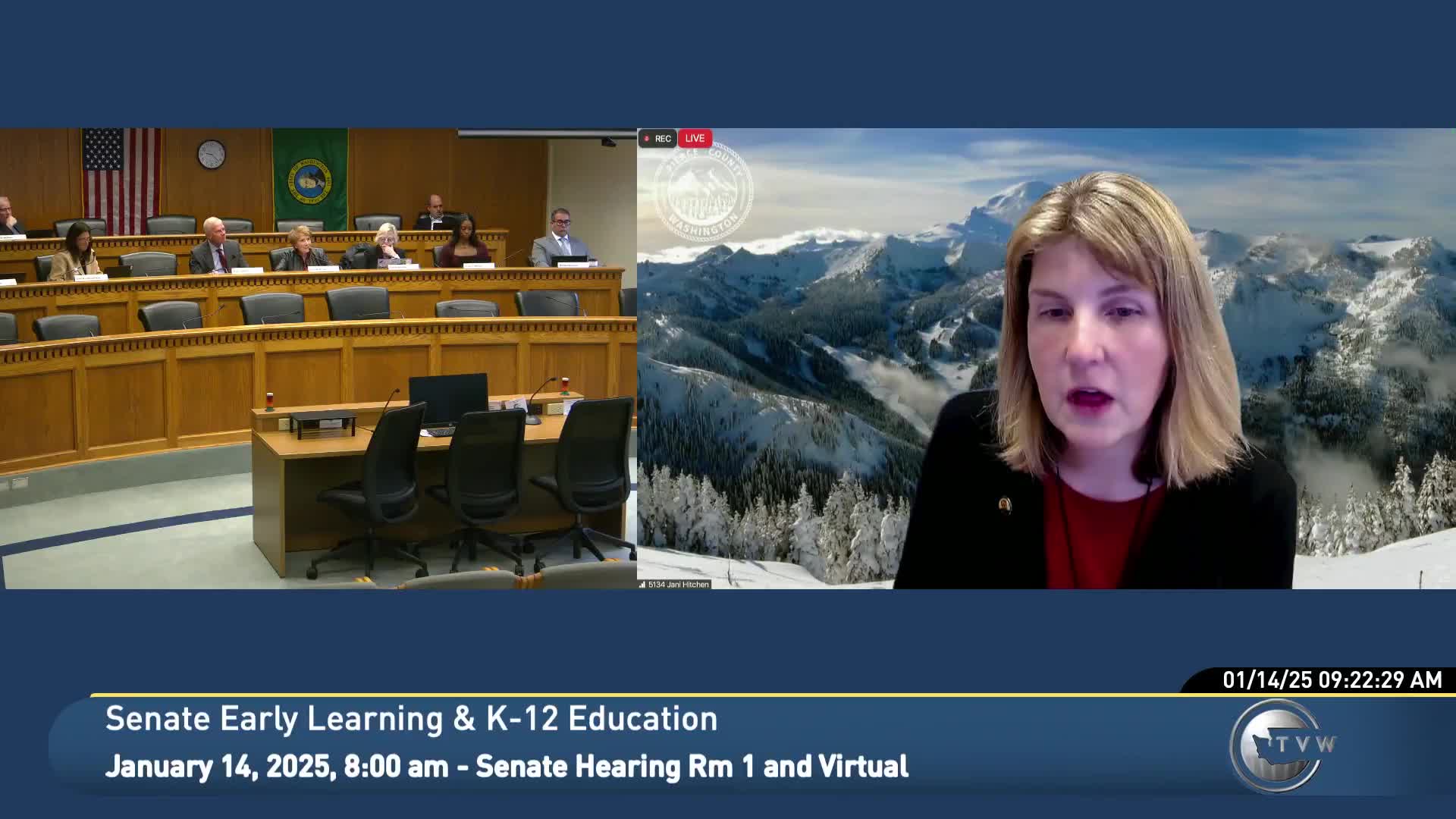Department of Revenue says it could administer a wealth tax but flags valuation, compliance and staffing challenges
Get AI-powered insights, summaries, and transcripts
Subscribe
Summary
The Department of Revenue told the House Finance Committee a November 2024 report surveyed international and state experiences with wealth taxes and concluded DOR could administer a wealth tax if the Legislature enacted one, but valuation of nonmarket assets, evasion risk and resource needs present significant hurdles.
Steve Ewing presented findings from a DOR report on wealth taxes to the House Finance Committee on Jan. 14, describing administrative challenges and lessons from other jurisdictions.
DOR summary: The report — produced under a budget proviso — reviewed proposals in Washington and other jurisdictions, surveyed administrators in countries that levy wealth taxes and cataloged practical challenges including asset valuation, enforcement and taxpayer mobility. DOR concluded it can administer a wealth tax if the Legislature enacts one, but the department warned that valuation of nonmarketable assets and enforcement costs are substantial.
Why it matters: Wealth tax proposals have risen in prominence and appear in the Governor's budget materials and in bills introduced in past sessions. Any state-level wealth tax would raise legal, administrative and forecasting questions and could affect high-net-worth individuals and certain asset markets.
Key findings
- International and interstate experience: DOR surveyed eight countries that currently levy a wealth tax and sent questionnaires to Swiss cantons; replies emphasized valuation difficulty for nonmarket assets and that evasion is the top enforcement challenge. Several countries have repealed wealth taxes in recent decades.
- Administrative considerations: Market-traded assets (stocks, bonds, ETFs) are straightforward to value; private or nonmarket assets require formulaic or specialized valuation methods. DOR said it has limited experience with these methods beyond estate-tax administration and would likely need additional staff, rules and electronic filing requirements.
- Compliance and revenue reliability: Respondents reported compliance rates ranging from 82% to 98% in national contexts, but DOR cautioned those figures may not translate directly to state-level administration. DOR recommended high exemption thresholds, robust electronic filing and sufficient audit and enforcement resources.
- Legal and policy framing: Given Washington's tax constitution and structure, DOR said a wealth tax might need to be structured as a form of property tax; lawmakers should consider valuation rules, taxable asset base and interactions with other taxes such as capital gains.
Questions from committee members centered on likely staffing and cost implications, which DOR said would depend on the proposal’s parameters and referenced fiscal notes prepared for prior bills (House Bill 1473 and Senate Bill 5486 in 2023). Lawmakers also asked about migration effects and the share of wealth held in real estate versus financial assets as wealth rises.
Ending: DOR placed the report in the committee's electronic bill book and said the department would provide additional technical details and fiscal notes if the Legislature pursues a wealth-tax proposal.
